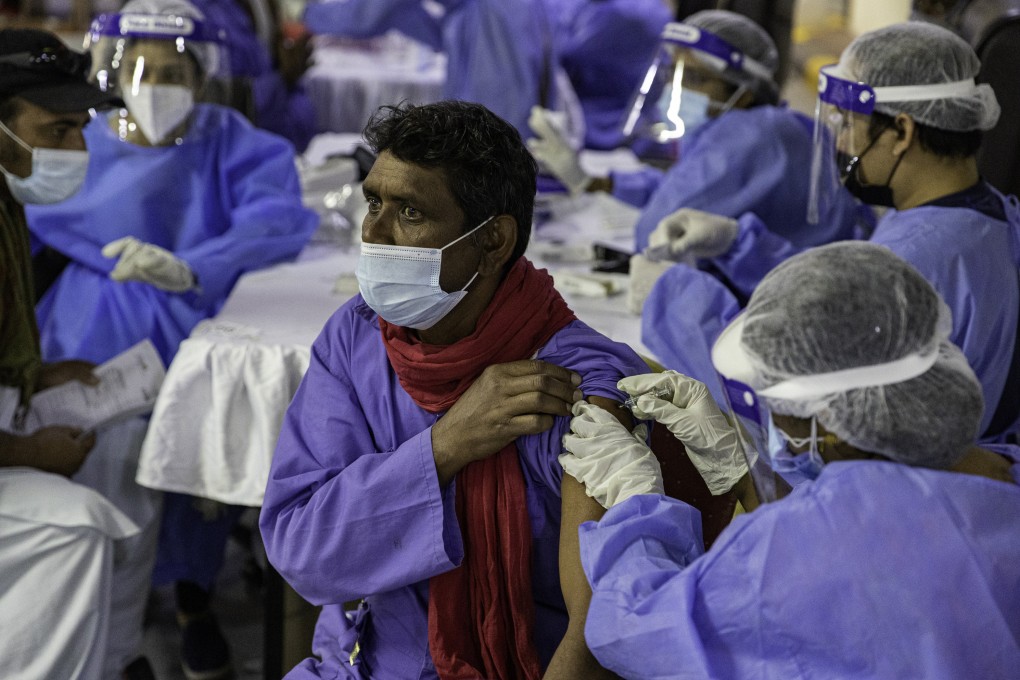Advertisement
Opinion | For the UAE, China’s vaccine diplomacy is a stepping stone to its own geopolitical ambitions in the region
- Far from being a passive recipient, the United Arab Emirates plans to make and distribute vaccines as a regional hub, extending its own vaccine diplomacy
- Its vaccine push also benefits its economic plans and tourism
Reading Time:3 minutes
Why you can trust SCMP
5

The United Arab Emirates is the third-most-vaccinated country in the world, having administered more than 6 million doses of Covid-19 vaccines, according to the Bloomberg vaccine tracker. China has played a prominent role in this since Abu Dhabi began phase three clinical trials for the Sinopharm vaccine back in June.
Last month, the UAE announced a partnership with Sinopharm to manufacture its vaccines locally. For the UAE, “vaccine diplomacy” with China is just one step in a broader project that transcends the quiet rivalry between Abu Dhabi and Dubai: it is about building the UAE’s manufacturing capacity while boosting Emirati geopolitical influence.
Since 2016, the UAE’s efforts to diversify its economy beyond the oil trade have focused on local manufacturing, which would address unemployment among the well-educated, younger portion of its population as well. Manufacturing is also an opportunity to facilitate technology transfers from China that will align with each emirate’s industrial strategies and economic vision.
Advertisement
Manufacturing is a priority not only for tourism and trade hub Dubai’s Industrial Strategy 2030, but also for oil-rich political centre Abu Dhabi’s Economic Vision 2030 strategy. Broadly speaking, the UAE’s goal to indigenise knowledge is not limited to manufacturing; it hope to lead the regional development of artificial intelligence technology, the digital economy and space exploration.
In supporting the UAE’s ambition to be a vaccine hub for the Middle East and North Africa, China is the most prominent player – but not the only one. The UAE has taken steps towards manufacturing not just Chinese vaccines but also potentially Russia’s Sputnik V. And it has vowed to distribute billions of vaccines to help poorer countries as it extends its own vaccine diplomacy.
Most of these vaccines will be distributed through the rival vaccine logistic alliances that have emerged respectively in Abu Dhabi and Dubai. Some developing countries that are long-standing partners of the UAE, such as Indonesia and Jordan, have already bought Sinopharm vaccines distributed through the Emirates.
Advertisement
Select Voice
Select Speed
1.00x

